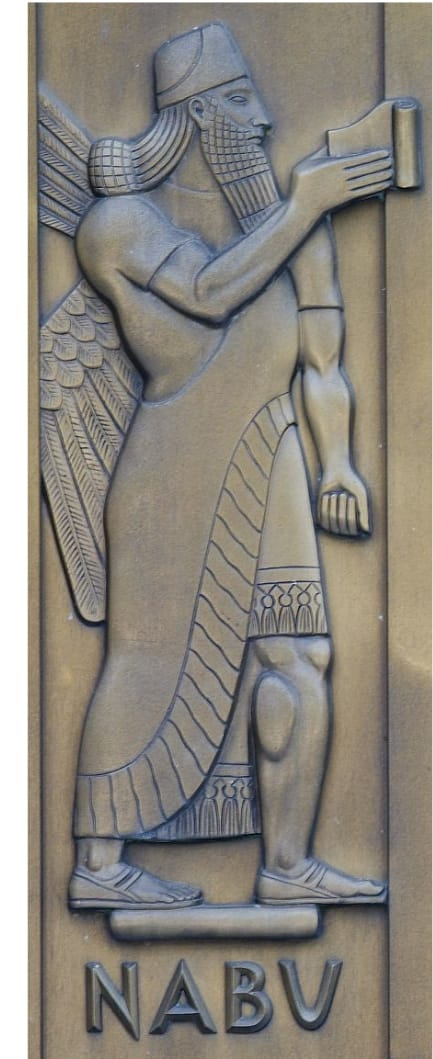Nabu, god of writing and wisdom

He is one of the ancient deities in Mesopotamia, as he was the god of writing and wisdom in Mesopotamia, and he was known to the Babylonians as the son of the god “Marduk.”
Several temples were erected for him in Nabu, the most famous of which was the “Yazida” temple, in which they found the sun disc engraved on its walls. It is located in the city of Borsippa, which was considered the center of worship of this god. He was initially “Marduk’s minister” and his scribe, and then later became his son. Among the most important periods in which his position was strengthened were the Neo-Assyrian period and the Neo-Babylonian era
The god Nabu had 3 wives: Tashmitum, Nanaya, and Nisaba, and he had no children.
According to ancient Sumerian ideas and beliefs, he was a god of writing and wisdom. At the beginning of his worship, he was a god of agriculture, a scribe, and a messenger to the gods, the god of the pen, knowledge, and parchment, and the protector of writers and copies.
Nabium was known in the Akkadian era
Documents from the Third Ur era and the Old Babylonian era are believed to have been transformed into Nabu in more recent times.
The god Nabu was known in the Torah (Old Testament) as (Nebo).
In Aramaic, it appeared in the form (Nbw), as well as in Palmyra, Syriac, and Mandaean, and in Latin it appeared in the form (Nebus).
As for the meaning of the name in the Assyrian language, it means (calling out). There are other meanings for the name of the god Nabu, including (the illustrious). According to the opinion of Professor Taha Baqir, naming the god Nabu means (appearance or speech). It is possible that the word (prophet) came from the word (Nabu) as a degree. Great religious faith for his priests
Source: websites

